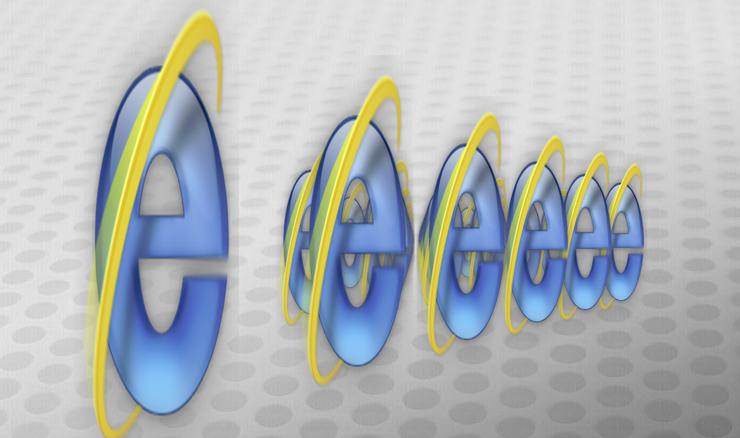
Internet Explorer 9
Taking control of add-ons
When you run add-ons in a browser, they can slow down your browser's performance. IE9 has tackled that problem with a new feature that other browsers would do well to emulate. If IE9 detects that you've got add-ons that might slow down your browser, it pops open a notification bar at the bottom of your screen.
Click "Disable add-ons" and a screen appears that lists the add-on name, manufacturer and an estimate of the time that each add-on contributes to the delay when starting IE, opening a new tab or navigating to a Web site. You can then disable any of the add-ons to speed up browsing.
To Microsoft's credit, it lists its own add-ons as well. In this way, you can make an informed decision about whether an add-on's features are worth the performance hit you take by running it.
To turn an add-on back on, you click the Tools icon, select Manage Add-ons, choose "All add-ons" from the drop-down box on the left side of the screen, highlight the add-on you want to turn back on and select Enable.
This is an excellent feature that Mozilla, in particular, should consider adding. Power users often wonder what kind of performance hit Firefox takes because of its add-ons.
The new notification bar does more than just warn you about add-ons that may impact the browser's performance. It also pops up when the browser takes an action such as blocking pop-ups, and issues other types of warnings or requests.
This can be helpful if you visit a Web page that contains both secure and nonsecure content on a Web page -- for example, an online store or financial site that uses an https/SSL secure connection but also displays ads, images or scripts from a non https-server. IE9 warns you that it is displaying only secure content, and it lets you display both types of content by clicking the "Show all content" button.
The problem with this security notification is that you can't tell it to always display secure and nonsecure information on a site you visit that you know is safe. The notification will appear every time you visit the site, and you'll have to click the button each time.
HTML 5 and compatibility
IE9 displayed pages without problems on all the pages I normally visited in my Web browsing, with one exception -- it did not properly display the Google Tasks widget on my iGoogle home page.
Microsoft claims that IE9 offers extensive support for HTML 5 and other Web standards. It scored a 95 on the Acid3 test, which shows how well a browser adheres to several sets of Web standards, notably those related to JavaScript and the Document Object Model. In the first developer preview, IE9 rated only a 55, so Microsoft has made significant improvements.
On the same test, Firefox Beta 4 scored a 97, Safari scored 100, and Opera scored 100. Chrome also scored 100 --- except that on some systems it does not render the boxes and colors at all.
Better handling of downloads
IE9 also introduces a useful downloads manager that keeps track of your downloaded files, and lets you search them by file name.
Even more important is a planned change to the SmartScreen Filter. Designed to prevent users from visiting phishing sites, the SmartScreen Filter now includes a "download reputation" feature to protect against malicious files.
When you download a file in IE9, the SmartScreen Filter will examine the file's reputation -- that is, whether it has been downloaded by many other people and, if so, whether those people have found the file to be safe or malicious. If a file is safe, you download the file as you normally would. But if the file has a reputation of being malicious, or whether it is so new that it has no reputation at all, you'll get a warning. It's then up to you whether you want to download it.
Given that anti-malware programs already check downloaded files to see whether they are malicious, why bother with this feature? Because it's designed to protect people against malicious files that are so new that anti-malware programs have not yet had a chance to recognize them.
Note that the feature has not yet been enabled. When Microsoft decides it has gathered enough data about the best way to use the reputation model, it will turn the feature on.
The bottom line
With IE9, Microsoft has fixed one of Internet Explorer's biggest drawbacks -- speed. IE9 also has a stripped-down interface that puts Web content center stage, and it has plenty of nice extras, such as the Address Bar now doubling as a search bar. The Windows 7 pinned site feature is certainly nice and could be useful, but it's not absolutely vital.
Those who use many add-ons will still favor Firefox over IE9, because IE9 simply doesn't have nearly the same number of add-ons that Firefox has. But the IE9 feature that warns about add-ons that drag down browser performance is a nice tool that Firefox should consider adding.
IE9 doesn't have a new killer feature like Firefox's tab-organizing Panorama. Still, given the new speed and the simpler, stripped-down interface, it represents a big improvement over IE8. And it puts IE back as a major competitor in the browser wars.
Internet Explorer 9 is available for public download at www.beautyoftheweb.com.
Preston Gralla is a contributing editor to Computerworld.com and the author of more than 35 books, including How the Internet Works (Que, 2006).
Join the CIO Australia group on LinkedIn. The group is open to CIOs, IT Directors, COOs, CTOs and senior IT managers.
